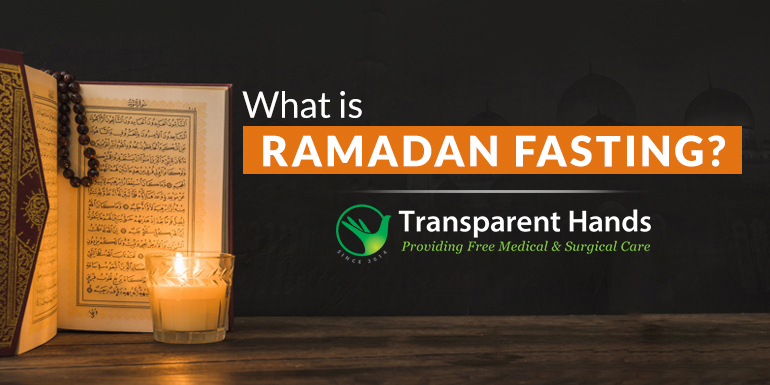What is Ramadan Fasting?

Introduction
Not long before we once again get graced by the blessings of the holy month of Ramadan. This sacred month is celebrated by Muslims, all across the globe, with religious zeal and zest. But unfortunately, for some non-Muslims and beginner Muslims, things get a little confusing at times. Hence, revisiting the very basics of Ramadan fasting at this time might not be a bad idea after all. In this discussion, we will try to cover the basic concepts of Ramadan fasting by answering an elementary question in detail. And that question is: What is Ramadan fasting?
What is Ramadan fasting?
Simply put, Muslims all over the world abstain from worldly desired from dawn to dusk in the holy month of Ramadan. There are many purposes this exercise serves to achieve. Fasting aims at inculcating empathy in our hearts, which is desperately needed in times like these. It encourages one to feel the pains and sufferings of underprivileged individuals of society. Apart from that, it aims at the spiritual growth of an individual, something we will be discussing later in this article.
What is Ramadan fasting’s starting date?
Ramadan fasting begins once the crescent is spotted in the sky. This is the reason why Ramadan fasting starts on different dates, every New Year. For some people, it is quite confusing at first. Well, that’s one confusion gone, right?
Ramadan fasting, a pillar of Islam
Well, if you didn’t know, there are five pillars of Islam. These include faith, prayer, charity, pilgrimage to Mecca and yes, fasting. So, you can see why this holy month is so important to Muslims all across the world. The consequences associated with skipping fast intentionally are quite severe. However, there are certain exemptions associated with Ramadan fasting. We will discuss these later in this discussion.
What do Muslims do all day while fasting?
To be honest, it is like any other day. What you do makes any day special. What is Ramadan fasting’s impact on daily life? Now that is a more appropriate question. Well, for one, there is an increased frequency of prayers and religious activities. Muslims like to use this period for reflecting and repenting on their previous life. Seeking forgiveness from Almighty is a crucial aspect of Ramadan fasting. Apart from that, traditional activities of Ramadan include pre-dawn meals, breaking fast and praying Taraweeh at night. The later is a long-form of prayer in which all of the Quran chapters are recited daily.
How does fasting impact physical health
You might be thinking, do Muslims lose their weight drastically after fasting? Well, that is hardly the case, thanks to fat-loaded diets Muslims have in this holy month. However, there are a lot of benefits associated with fasting. It helps your body to get rid of all the toxins. Also, the metabolism becomes much more efficient by the time this holy month is over.
What is Ramadan fasting’s impact on spiritual growth?
Ramadan fasting is not about just staying hungry all day. Rather, this holy month provides Muslims with an opportunity to reflect and repent on their mistakes and sins. It gives them a chance to rectify themselves and become better versions of themselves. Without achieving spiritual goals related to fasting, the whole exercise becomes rather meaningless. Spiritual context of fasting is way more important than it is considered by, even practicing Muslims/
What is Ramadan fasting’s reward?
At the end of every test, there is some kind of reward, right? So, what is Ramadan fasting’s reward? Muslims celebrate Eid at the end of Ramadan fasting. This joyous occasion is all about sweetness. Gifts and food heavily dominate this joyful season.
Who is exempt from Ramadan fasting?
Ramadan fasting becomes an obligation for those Muslims who have reached puberty. However, there are some exemptions as well. These include terminally ill patients, extremely sick patients, travelers, and nursing mothers.
Conclusion
Well, that is all from this discussion. Hopefully, at this point, you know more than you knew when you began reading this discussion. Remember that it is impossible to achieve the true purpose of Ramadan fasting without considering the spiritual side of things. Staying hungry is of no use to almighty if you don’t find time to reflect. After all, what is Ramadan’s fasting without repentance?










Leave Your Comments